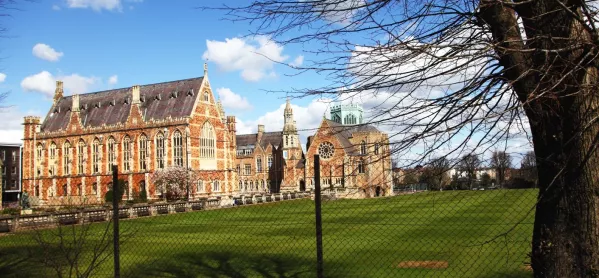The headteacher of a state school next to Grenfell Tower has called the Labour Party’s motion to abolish private schooling “misguided,” arguing that this would not benefit his pupils.
Writing in a column in The Times today, David Benson, headteacher at Kensington Aldridge Academy, where pupils were displaced from school buildings for over a year following the Grenfell fire, said he found the party’s proposal to ban private schools “troubling.”
News: Labour votes to abolish private schools
Opinion: ‘Many independent schools would be awful state schools’
Quick-read: Why abolishing private schools is ethically dubious
He said that while “there is much wrong with education…this policy is not the answer”.
In addition, he argued that while private schools should do more to support the state sector, it would be best to “build on what is happening already”.
“My school is next to Grenfell Tower, so has received more support than most, but these links exist elsewhere.”
He pointed out that sixth formers at his school had completed A levels at the neighbouring private schools Godolphin and Latymer Upper School, “in subjects we don’t offer and at no extra cost”.
On Monday, a motion calling on the next Labour general election manifesto to commit to “integrate all private schools into the state sector” was passed at the Labour Party conference.
David Goodhew, headteacher at Latymer Upper School, said his school had a number of “mutually beneficial” partnerships with state schools in the local community and that Labour’s motion was based on “pure ideology.”
“We have had students from Kensington Aldridge join us to complete their A level in design and technology, and we did something similar with Ark Burlington Danes [another academy based in the borough] for A level chemistry,” he said.
“We partner with over 50 local schools, benefiting 1,000 children per year.”
Mr Goodhew said the school had opened up their science laboratories to two local schools, as well as running a mentoring programme for GCSE pupils at the West London Free School (WLFS) and running Saturday schools for primary students.
“We want to be a good citizen in the local community,” he said.
He said such partnerships worked to the benefit of both state and private schools. The history and politics departments from WLFS and Latymer organised speakers and events for the benefit of both schools.
Today, pupils from Latymer had attended a talk given by a survivor of the Holocaust at WLFS, and this evening, 23 partner schools would attend a talk at Latymer given by representatives from Harvard and Yale on US university admissions.
Mr Goodhew said social mobility was not only important to the school but to him personally.
“I grew up in the tower block opposite Grenfell - I am from a working-class family, and I could not have afforded to attend Latymer as a boy,” he said.
Regarding Labour’s motion, he said it was likely to make the sector more inaccessible for poorer pupils.
“One in five of our Year 7 cohort is on a bursary and that will be one in four in five years’ time. The Labour motion is fascinating because even senior Labour figures are backing away from the idea. This isn’t going to benefit the state sector at all.”
“We want to open up our schools through bursaries and this makes that so much harder. We know that taking disadvantaged pupils and placing them in advantaged schools is the best thing for raising educational attainment.
I can’t see any benefit from this in terms of educational impact, social mobility or social justice - it’s pure ideology.”




